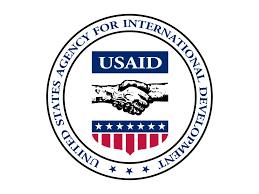Editorial
Advent of PoS in Nigeria: A blessing or curse?

When the Central Bank of Nigeria (CBN) introduced the Point Of Sales(POS) in 2013 in Nigeria, though there was initial skepticism by the citizens of the efficacy of the device, people later embraced it after a series of sensitisations.
People did not accept the POS operations wholeheartedly, until the Automated Teller Machine (ATM) and other terminal electronic transactions began to fail, with its attendant frustrations and inconveniences meted out on the users.
For example, failed transactions and incessant debit of the customers. Things got worse when ATM machines no longer bear cash as supposed to be. This ugly situation reared its head into the banking system of Nigeria, consequent upon the attempt by the former Governor of CBN, Godwin Emiefele to automatically replace the higher denominations of old Naira notes with new ones. A policy that almost collapsed the financial system of Nigeria, resulting in an all time cash crunch that forced Nigerians to buy their own money with more money from the POS operators.
The situation got so bad that a price tag of as much as N3,000 commission was placed to buy our own N5,000 from the Shylock POS operators. The heat was worsened by the last general elections in the country, where the politicians could not access money for campaigns and other logistics.
This probably made President Ahmed Bola Tinubu to fire the then CBN Governor on assumption of office. And worse still the then CBN Governor, Emiefele abortively attempted to contest for Presidency while still in office as CBN Governor.
Till date, the embattled ex-CBN Governor is still battling to wriggle himself out of the myriad of allegations of official misconduct preferred against him by the Anti-graft Agency in the country,talking about the Economic Financial Crime Commission (EFCC).
It is a known fact that the primary reason for introducing POS and other terminal electronic transactions has been abused and defeated. According to the CBN, the basic reason for introducing the PoS is to reduce cash in circulation and the risk of carrying huge cash around. But what do we have today? ATM machines littered all over the streets of Nigeria, without cash and ironically, POS operators are buoyant with enough cash, planked on cut-throat commission.
The question now is who regulates the POS operations and where are they sourcing their funds, when virtually every ATM machine in town is empty and the banks are rationing the amount of withdrawals for their customers at the banking halls.
As if that is not enough, transaction failure is now the order of the day at the ATMs. To add salt to the injury, failed withdrawals are indiscriminately backed with debits and reversal that used to be automatic is now history. The implication is that the affected customers must now go to their respective banks and commence documentations of incidence forms and in most cases seven working days are given for reversal, which may never come.
There have been complaints from customers who waited for the elusive seven working days, which never came and they naturally lost count and hope and the money just went like that. We are no longer talking about countless loss of manhours and its attendant inconveniences. So why are ATM machines not loaded and the POS machines are operational? Who should be held responsible for this sabotage or conspiracy?
Are bank customers no longer entitled to convenience, rights and privileges as customers? These are some of the questions begging for answers. At this juncture, it is pertinent to attempt to proffer solutions to this macabre dance of the POS operators and the banks.
First and foremost, there is no reason why the ATM machines should not be loaded by the respective banks. In the first place, the terminal electronic transactions were introduced to discourage customers from flooding the banking halls, but the recent “no cash syndrome” at the ATMs has forced customers to start thronging banking halls for smaller transactions that would have been conveniently carried out without entering the banks. So the primary cure to this ailment is to load the ATM machines and make banking transactions seamless.
Again incessant debits without payment at ATMs must be checked. If reversal is automatic as it used to be, customers will sweat less. Why can’t we improve in what we have started, via automatic reversal, if transactions must fail? This will save man-hours loss and stress of visiting the banks only to fill incidence/transaction failure forms. What effectively operates globally should equally work or operate in Nigeria. We don’t have any option, let it not fall under the derogatory terminology of ‘Nigerian factor’ or ‘African time’ as they call it.
The POS operations system is a beautiful concept that should not be allowed to die, provided it is done and regulated well by the CBN. We know that it is not too difficult to do the right thing, it is just a matter of determination, commitment and political will.
Editorial
Nigeria must act now to mitigate flood disasters


As the rainy season looms ahead, a palpable sense of concern grips the nation.The recent cautionary message from the Federal Government to 31 state governors regarding the looming threat of floods from April to November serves as a wake-up call, demanding swift and concerted action from both state and federal authorities.
Presented by Minister of Water Resources and Sanitation Joseph Utsev, the 2024 Annual Flood Outlook paints a bleak picture, underscoring the urgent need for preemptive measures. It is not merely an emphasising advisory; it is a resounding call to arms.
The spectre of past flood calamities in Kano, Taraba, Lagos, and other states still haunts our collective memory.
The haunting images of devastated homes, displaced families, and shattered livelihoods serve as poignant reminders of the human toll exacted by our complacency.
It is imperative that we glean lessons from these tragedies and take proactive steps to forestall the impending catastrophe.
The warning issued by the Federal Government is crystal clear: floods are imminent, and the time to act is now.
The Nigeria Hydrological Services Agency’s classification of 148 local government areas across 29 states, including Lagos, Kano, and Delta, as high flood-risk zones emphasising the gravity of the situation.
Every moment of inaction heightens the risk to countless lives and properties. State governors, local authorities, and relevant agencies must set aside differences and collaborate effectively to implement robust flood preparedness and mitigation measures.
From infrastructure reinforcement to early warning systems and community awareness campaigns, a comprehensive approach is imperative to safeguard vulnerable communities.
As responsible stewards of our nation’s welfare, we cannot afford to be caught off guard. Let us heed the warning, unite in purpose, and proactively address this looming threat.
The cost of inaction is too grave to contemplate, and the time to act decisively is now. This is not a drill.
The minister’s revelation that 31 states face high flood risks, while all 36 states and the Federal Capital Territory will experience moderate flooding, demands immediate attention and collective action.
“The high flood-risk states are Adamawa, Akwa Ibom, Anambra, Bauchi, Bayelsa, Benue, Borno, Cross River, Delta, Ebonyi, Edo, Imo, Jigawa, Kaduna, Kano, Katsina, Kebbi, Kogi, Kwara, Lagos, Nasarawa, Niger, Ogun, Ondo, Osun, Oyo, Plateau, Rivers, Sokoto, Taraba, Yobe,” the Minister said.
We cannot afford to wait until the waters rise and lives are lost. The time to act is now. It’s imperative that federal and state governments, agencies, and local communities join forces to mitigate the impact of floods.
This requires a coordinated response, including public awareness campaigns, infrastructure upgrades, emergency preparedness plans, and investment in flood mitigation projects.
The future of our nation depends on it. Let us heed the warning and take proactive steps to build a more resilient Nigeria, where lives and properties are protected from the ravages of flooding. The clock is ticking; let us act now to avoid a catastrophe.
While 31 states face high flood risks, the remaining five states must also be proactive in their preparations. It’s not enough to simply warn residents to relocate from flood-prone areas; state governments must provide safe and conducive spaces for relocation, complete with essential services like relief materials, healthcare, and security.
This will help mitigate the trauma faced by displaced families. Citizens, too, have a critical role to play. They must be willing to relocate from their homes and comfort zones to prevent avoidable deaths and losses. The stark reality is that flood disasters are devastating, as seen in 2023 when 45 lives were lost, 171,545 persons displaced, and 22,666 homes partially damaged, with 5,358 others completely destroyed.
The economic toll was equally staggering, with a $4.6 billion bill that significantly dented Nigeria’s GDP. Let us learn from the past and take collective responsibility for flood preparedness. State and federal governments, agencies, and citizens must work together to build a more resilient nation, where lives and properties are protected from the ravages of flooding. The time to act is now.
In 2022, flooding claimed 662 citizens; 2.43 million others were displaced and 3,174 were injured nationwide, per NEMA.
The financial losses were estimated at $9.12 billion by the Federal Government, and by a United Nations agency at $7 billion. A UN report stated that food insecurity was aggravated in the country as 569,000 hectares of farmland were destroyed by the flood.
According to the then Minister of Water Resources, Suleiman Adamu, 178 LGAs in 32 states were declared “highly probable flood risk states.”
Although climate change remains a global concern, leading to flash floods, droughts, forest fires, and cyclones, the government must not make excuses.
They need to take lessons from previous floodings and replace their nonchalance with strategic actions and campaigns. They must do all they can to avoid the repetition of losses of lives and properties.
The citizens must play their part by clearing drainage in their vicinity, cultivating good waste disposal and environmentally friendly culture. To entrench this, the government must place strict surveillance and enforce stiff penalties against erring residents.
State governments should demolish structures erected on flood paths to enable rainwater to drain appropriately.
NGOs in the environmental niche should activate campaigns distilled in local languages through the media to prepare citizens for the flood.
The federal and state governments should be proactive in the deployment of ecological funds to provide guardrails against natural disasters. This must be used for pre-emptive measures like building bridges, desilting rivers, evacuating canals and drainage, and building dams and levees. The dams would help preserve excess rainfall to irrigate farmland during the dry season.
The government must fully embrace its onerous duty to safeguard lives and properties.
Editorial
Preparing for a challenging farming season: NiMet’s forecast and the need for proactive action


As the farming season beckons, Nigerian farmers are bracing themselves for a turbulent ride. The Nigerian Meteorological Agency’s (NiMet) forecast of a delayed and shorter rainy season has sent shockwaves across the agricultural community, threatening to upend the delicate balance of our food security.
With millions of farmers poised to plant their crops, the clock is ticking. Will our policymakers and stakeholders rise to the challenge, or will we reap a harvest of regret? According to NiMet, this year’s rainy season will commence later than usual, with the central states expecting the onset of rains around May 29 and the northern states around June 13.
Moreover, the season is predicted to end earlier than usual, between October 6 and November, in many states. This forecast raises concerns for farmers, as a shorter rainy season can lead to reduced crop yields and increased risk of drought.
To mitigate these challenges, NiMet advises planting early-maturing crop varieties at the beginning of the season. This is a wise recommendation, as it allows farmers to adapt to the predicted weather patterns and minimize potential losses.
With predictions ranging from October 6 to November, regions including Yobe, Jigawa, Sokoto, and Lagos are bracing for a shorter agricultural window. This forecast emphasised the critical importance of proactive planning and early adoption of fast-maturing crop varieties.
The essence of NiMet’s warning is clear: farmers must act swiftly to secure the necessary resources for a successful harvest. From fertilizers to seeds, the time to procure vital inputs is now, to mitigate potential setbacks and ensure a fruitful season. Traditionally, this period marks the commencement of government initiatives to facilitate the purchase and distribution of agricultural inputs. However, the silence on this front is deafening.
Instead of prioritising the long-term sustainability of agriculture, many officials seem fixated on short-term palliative measures, neglecting the imperative of future agricultural prosperity. As the countdown to the abbreviated season begins, the call to action grows louder. Farmers must seize the moment, equipping themselves for the challenges ahead, while policymakers must refocus their attention on fostering a resilient agricultural sector for generations to come.
Only through collective effort and foresight can we navigate the uncertain terrain ahead and ensure a bountiful harvest for all. As the federal government pledges to revamp the textile industry, Nigerian farmers are grappling with a more pressing concern – the exorbitant cost of fertilizers and other essential inputs. A bag of fertilizer now costs a staggering N48,000, forcing farmers to either purchase substandard products or resort to traditional alternatives, resulting in poor yields and revenue losses. The high costs of seeds, herbicides, pesticides, labour, and fuel have pushed small-holder farmers to the brink.
Despite President Bola Ahmed Tinubu’s assurances of support, including a promise to release 225,000 metric tons of fertilizers, seedlings, and other inputs in August 2023, concrete actions are yet to be seen. With food prices soaring nationwide, it is imperative that the government takes immediate steps to address the plight of farmers, who are crucial to the nation’s food security.
We urge the government to translate its promises into tangible support for farmers, including affordable access to quality inputs, to ensure a bountiful harvest and a food-secure future for Nigeria. We commend the Central Bank of Nigeria’s release of 2.15 million bags of fertilizer to the Federal Ministry of Agriculture and Food Security. However, it is alarming that there has been no update on the distribution of this vital commodity since the handover over a month ago.
Furthermore, we urge state governments to take their responsibilities in ensuring adequate input supply to farmers more seriously. We also call on the federal government to implement policies that facilitate the supply of fertilizers, seeds, and other inputs to the markets, thereby controlling rising prices.
The Presidential Fertilizer Initiative needs to be reviewed to ensure fertilizer blending plants resume production. Our farmers urgently need government support to access necessary inputs for successful cultivation. As the rains continue to falter, Nigerian farmers face an uphill battle. We urge the government to seed hope by providing essential resources – quality seeds, fertilizers, and equipment – to help them weather the storm.
Climate-resilient agriculture initiatives and weather insurance schemes will also help farmers adapt and thrive. But, there’s a greater challenge to tackle – the menace of bandits and militias terrorizing farmers, forcing them off their lands, and threatening our food security.
It’s time for decisive action! The government must act swiftly to protect our farmers, their farms, and our collective future. Let’s join forces to cultivate a brighter tomorrow, where our farmers can plant, grow, and harvest without fear. The time to act is now, for the sake of our nation’s food security and stability. Let’s sow the seeds of resilience and reap a bountiful harvest for generations to come!
Editorial
Epileptic national grid in Nigeria: The way forward


It is now commonplace to hear about the collapse of the national grid in Nigeria. In short, the news is now a periodic ritual. And for a country like Nigeria with all its potentials to be galloping with power in the name of national grid collapse is to say the least pathetic. Countries within our neighborhood we often refer to as smaller nations have since left us behind in terms of steady power supply.
Records have it that Nigeria has recorded about 140 national grid collapses since 2013 when the National Electricity Power Authority (NEPA) was unbundled and still counting. In first quarter of 2024 alone, Nigeria has recorded two national grid collapses, one on 4/2/2024 and the other on 28/3/2024. One may now ask,what is the real problem? The country generates 4,000MW of electricity for a population of approximately 200m people. This is a far cry! What do we think 4,000MW will do for such a gargantuan population? Only God will save us!
According to reports, the Federal Government is targeting about 30,000MW in 2030. But experts say Nigeria needs about 33,000MW of electricity supply with its current population to be comfortable. Until that is achieved, it remains a dream. Now that power has been put into the concurrent list, states should wake up and embark on power generation projects to fill the existing gap created by the big brother, the Federal Government. It is not enough for states and local governments to continue to cry wolf when actually they can do something about the problem.
What are the effects of frequent national grid collapse? When there is a power outage, companies and organisations must provide their outfits with alternative power supply. That is, diesel or petrol. This will automatically increase the cost of production. Private companies with little or no stamina to absorb the extra cost will close shop and the economy will be impacted negatively on. Workforce will be reduced or entirely laid off. Unemployment will creep in with its attendant factors of restiveness, social vices, and outright insurgency.
The country will start grappling with insecurity and its allies. Money that would have been spent on developmental projects will now be channelled to security, just as we have now. Lack of power equally brings about lack of social amenities, such as lack of potable water, healthcare services and poor infrastructures.In a situation like this, investors will take flight and the economy will collapse. We pray that our situation in the country does not get to this stage, because that will amount to a socio-economic crisis that no nation longs to experience.
What is the way out? The reason is that wishes and prayers are not economic strategies. The remedy of course is within our reach. The operators of the power sector often complain of gas supply challenges. The question is who is holding the gas from being supplied? Are there rough curves that should be smoothened in the contractual agreements? Who is responsible for tidying up such spots? It is a matter of putting the round peg in a round hole and the results will be natural.
There must also be commitment, patriotism on the part of the supervising agencies. Enough political will must be generated to drive these processes. This, of course, boils down to good leadership. And we strongly believe that the Renewed Hope Agenda of the President Ahmed Bola Tinubu-led Federal government is out to provide that. So there is nothing stopping us from achieving any goal we set for ourselves.
Another cause of national grid collapse is poor transmission. Others are poor infrastructures, vandalism, and liquidity crisis. These problems are not insurmountable. All hands must therefore be on deck to achieve this.
-
capital market2 years ago
Rt.briscoe, FBNH, Others halts negative performance of stock market
-
Finance3 months ago
Court orders Sen. Victor Umeh to repay N136m bank debt to AMCON
-



 Abuja Update2 months ago
Abuja Update2 months agoUNDP, FG partnership needed to achieve inclusion, equity- Minister
-
Abuja Update1 month ago
Banks drive stock market performance with N147bn gain
-



 Health2 weeks ago
Health2 weeks agoCapacity training will reduce migration of health workers- NPHCDA
-



 Business1 week ago
Business1 week agoTingo Group unveils Tingo Electric, Tingo Cola drink at Lagos launch
-



 Infotech4 weeks ago
Infotech4 weeks agoWorld Backup Day: NITDA urges Nigerians to ensure backup of data
-
News4 months ago
Oil thieves sponsoring malicious media campaign against Navy – Spokesman
















